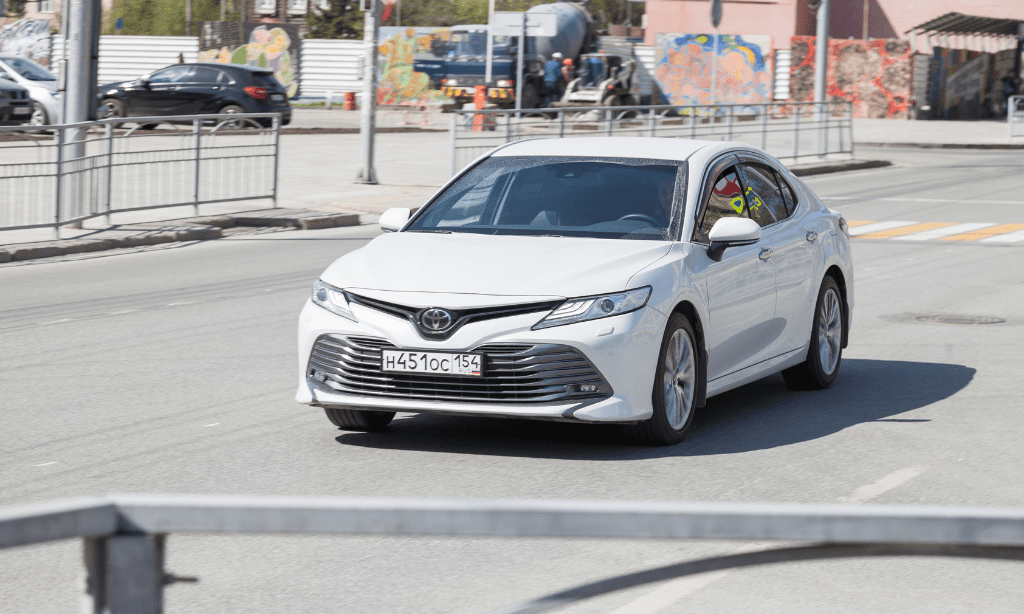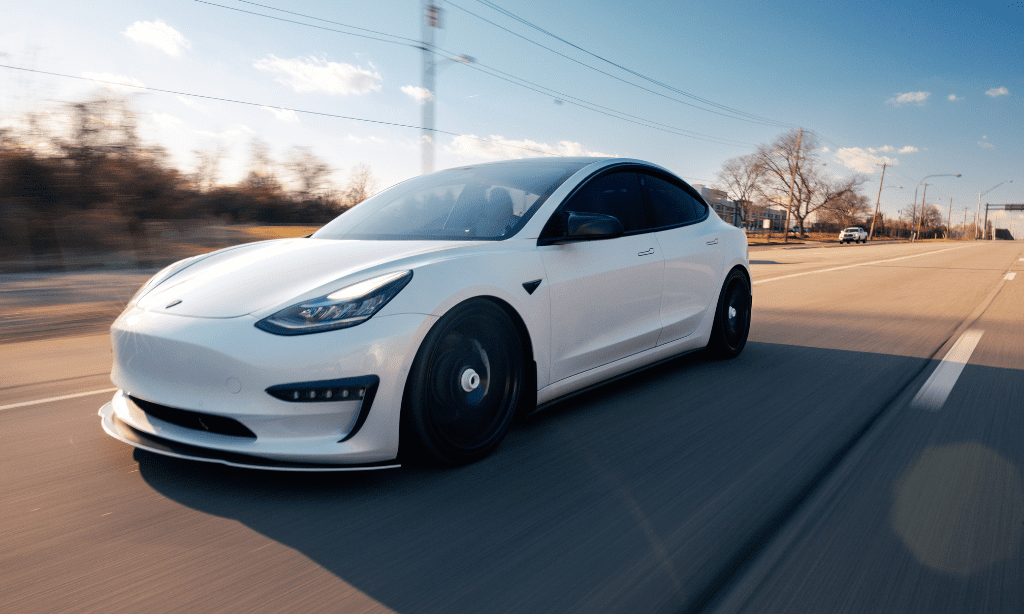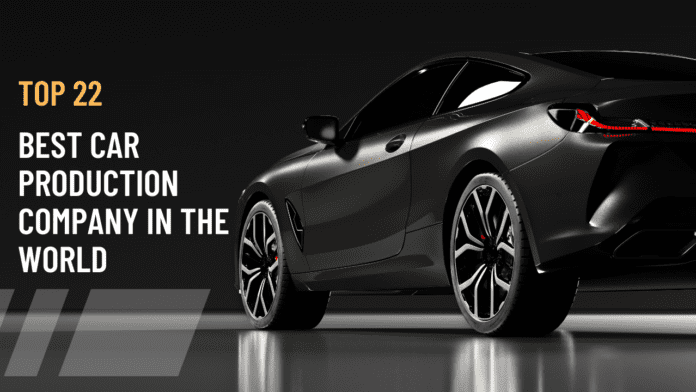Are you in search of the best car production company in the world? The automotive industry stands as one of the largest sectors, generating trillions of dollars globally.
In this article, we will delve into key contenders in car production and sales, providing a comprehensive analysis of their market performance. Additionally, we will explore present-day trends, obstacles, prospects, groundbreaking innovations, manufacturing technologies, and their influence on the environment.
Join us on this journey to uncover the industry leaders!
- The leading car manufacturer of 2022, boasts an extensive brand lineup, a robust commitment to innovation, and a strong focus on electric vehicles.
- A prominent industry player is renowned for pioneering manufacturing methods and hybrid technologies, maintaining a worldwide footprint while prioritizing reliability and sustainability.
- An emerging formidable contender achieved through the amalgamation of prestigious brands, offering a diverse product range and highlighting strategic partnerships.
- Acclaimed for its luxury offerings and cutting-edge technology, this global presence is firmly committed to electric and autonomous vehicles.
- With groundbreaking advancements like autonomous driving tech and the integration of renewable energy sources, leading automakers are actively pursuing sustainable practices to curtail carbon emissions from their facilities, aligning with long-term global sustainability objectives
22 Best Car Production Company In The World By Production And Sales
In 2022, the global automotive industry experienced robust sales, with prominent car manufacturers such as Toyota, Volkswagen, General Motors (GM), Honda, and Ford leading the market. Here’s an overview of the global ranking of these automotive giants based on their sales and revenue.
Volkswagen AG (Germany)
In 2022, Volkswagen AG, headquartered in Wolfsburg, Germany, maintained its position as the world’s leading car production company, boasting an impressive revenue of $295,819.8 million. Volkswagen AG stands out with its diverse brand portfolio, including names like Volkswagen, Audi, and Porsche, catering to a broad spectrum of consumers. The company’s reputation is built on its unwavering commitment to innovation, quality, and sustainability. Volkswagen’s global reach is underlined by its extensive manufacturing facilities and a vast dealership network spanning numerous countries. The company is actively embracing electric vehicle technology, as exemplified by its ID series, showcasing its dedication to being at the forefront of the evolving automotive landscape.
Toyota (Japan)

Toyota, headquartered in Toyota City, Japan, maintained its significant presence in the industry in 2022, generating substantial revenues of $279,337.7 million despite slipping to the second position. Toyota is renowned for its relentless commitment to quality and innovation. The company’s legacy includes pioneering manufacturing techniques such as the Toyota Production System (TPS) and its pioneering role in hybrid technology with the iconic Prius. Toyota’s global reach, unwavering dedication to reliability, and long-lasting vehicles have firmly established its position as a trusted automaker. In a fiercely competitive market, Toyota continues to invest in sustainability and technological advancement to uphold its formidable position.
Stellantis (Netherlands)
Stellantis emerged as a formidable contender in 2022, securing the third position with revenues of $176,663 million. Headquartered in the Netherlands, Stellantis represents the merger of several renowned brands, including Fiat, Chrysler, Peugeot, and more. This amalgamation has positioned Stellantis as a significant player in the global automotive landscape. The company’s diverse portfolio enables it to cater to various markets and segments, signaling its potential to challenge industry leaders. Stellantis’s rise underscores the significance of strategic alliances in the automotive industry.
Mercedes-Benz Group (Germany)

Germany’s Mercedes-Benz Group claimed the fourth spot with revenues of $158,306.1 million in 2022. Mercedes-Benz is celebrated for its luxury vehicles and cutting-edge technology. The brand’s commitment to quality and performance has cultivated a loyal customer base worldwide. Mercedes-Benz Group’s global presence is marked by an extensive network of dealerships and manufacturing facilities in key markets. The company continues to innovate in the luxury segment and invests in electric and autonomous vehicle technologies to stay competitive and relevant in the ever-evolving automotive landscape.
Ford Motor (United States)
Ford Motor, a prominent American automaker, stood at the fifth position with revenues totaling $136,341 million in 2022. Ford has a storied history and offers a diverse lineup of vehicles, ranging from trucks and SUVs to electric cars. The company’s commitment to innovation, sustainability, and iconic vehicles like the Ford F-Series trucks has solidified its position in the industry. With a global presence and a legacy of innovation, Ford continues to adapt to changing consumer preferences and technological advancements, ensuring its relevance in the competitive automotive market.
BMW (Germany)
BMW, a renowned German automaker, secured the sixth position in 2022 with impressive revenues of $131,521.6 million. BMW is synonymous with luxury, performance, and innovation. The company’s extensive portfolio encompasses premium vehicles, from sports cars to SUVs, catering to a discerning global clientele. BMW’s commitment to innovation is evident in its electric and hybrid offerings, such as the BMW i3 and iX3, highlighting its adaptability in an evolving automotive landscape. BMW continues to symbolize German engineering excellence and leads the way in luxury vehicle technology.
Honda (Japan)
Honda, a revered Japanese automaker, occupied the seventh position with revenues amounting to $129,546.9 million. Honda is celebrated for its reliability, fuel efficiency, and innovative engineering. The brand’s diverse product lineup spans motorcycles, cars, and power equipment, catering to a wide range of consumer needs. Honda’s commitment to research and development is unwavering, allowing it to introduce cutting-edge technologies like the Honda Sensing suite of safety features. With a reputation for durability and dependability, Honda continues to lead in automotive excellence.
General Motors (United States)
General Motors (GM), a storied American car manufacturer, generated significant revenues of $127,004 million, securing eighth place. GM boasts a rich history and a portfolio of iconic brands, including Chevrolet, GMC, Cadillac, and more. The company’s global presence is bolstered by a commitment to electric and autonomous vehicle technologies. Initiatives like the Chevrolet Bolt EV and the development of self-driving cars signify GM’s readiness to adapt to the evolving automotive landscape. As one of the cornerstones of the American automotive industry, GM continues to innovate and evolve.
SAIC (China)
China’s SAIC secured the ninth position with revenues of $120,900.2 million, exemplifying China’s growing role in the global automotive market. SAIC, a major player in China’s burgeoning automotive industry, operates joint ventures with global automakers such as General Motors and Volkswagen. The company’s diverse product portfolio, spanning conventional and electric vehicles, reflects its commitment to innovation. SAIC’s expansion and success are emblematic of China’s emergence as a formidable player in the global automotive landscape.
FAW Group (China)
FAW Group, another prominent Chinese automotive company, claimed the tenth spot with revenues totaling $109,404.7 million. FAW Group is a key player in China’s automotive landscape, producing a wide range of vehicles, including passenger cars, commercial trucks, and buses. The company’s significant presence in the domestic market underscores China’s ascent as a powerhouse in the global automotive industry. FAW Group’s ability to adapt to changing market dynamics and its commitment to innovation position it for continued growth and success.
Hyundai (South Korea)
Hyundai, a renowned South Korean automaker, clinched the eleventh spot in 2022 with an impressive revenue of $102,775 million. Hyundai has established a robust global presence, known for its combination of quality and affordability. The company’s commitment to innovation shines through its substantial investments in electric and hydrogen fuel cell vehicles. Notably, Hyundai’s dedication to environmentally friendly initiatives is exemplified by the Hyundai Nexo fuel cell SUV, which underscores the company’s focus on sustainable mobility. Hyundai continues to be a prominent player in the automotive market, where it competes vigorously and drives innovation on a global scale.
Dongfeng (China)
Dongfeng, another significant player in the Chinese automotive landscape, secured the twelfth position in 2022 with revenues totaling $86,122 million. Dongfeng plays a pivotal role in China’s thriving automotive industry and has fostered collaborations with international brands like Nissan and the PSA Group. The company boasts a diverse product range encompassing passenger cars and commercial vehicles, demonstrating its adaptability to ever-changing market demands. Dongfeng’s presence and steady growth exemplify China’s increasingly influential role in the global automotive industry.
Nissan (Japan)
Nissan, a well-established Japanese car manufacturer, secured the thirteenth position in 2022 with revenues of $74,994.9 million. Nissan’s global reach, innovative technologies such as the Nissan Leaf electric vehicle, and strong presence in key markets underscore its prominence in the automotive industry. Nissan’s unwavering commitment to electric and autonomous vehicle development positions it as a formidable force in the continuously evolving automotive landscape, making it a competitive and influential player.
BAIC Group (China)
China’s BAIC Group claimed the fourteenth spot in 2022 with impressive revenues totaling $74,687.3 million. The BAIC Group operates an extensive portfolio of brands and engages in joint ventures with international automotive companies. Its growth reflects China’s ambitious drive to establish itself as a global leader in the automotive industry. The company’s unwavering commitment to innovation and expansion, both within China and abroad, demonstrates its potential to become a dominant player on the global automotive stage.
GAC Group (China)
GAC Group, a formidable Chinese automotive giant, occupied the fifteenth position in 2022 with revenues amounting to $66,955.2 million. The GAC Group’s expansion, both domestically and internationally, serves as a testament to China’s increasing influence in the automotive market. The company’s key focus areas include quality, innovation, and sustainability, all of which have contributed significantly to its success in a fiercely competitive landscape. GAC Group’s continued growth underscores China’s emergence as a major and influential player in the global automotive industry.
Kia (South Korea)
Kia, originating from South Korea, secured the sixteenth position in 2022 with revenues totaling $61,049.8 million. Kia has made remarkable strides in the automotive industry by prioritizing quality, design, and affordability. The brand offers a diverse lineup of vehicles, ranging from compact cars to SUVs, effectively appealing to a broad consumer base. Kia’s commitment to innovation is well-demonstrated by its electric and hybrid offerings, which have enabled it to gain a strong foothold in the global market. As an integral part of the Hyundai Motor Group, Kia continues to contribute significantly to South Korea’s prominence in the dynamic world of automotive manufacturing.
Renault (France)
Renault, a distinguished French automaker, secured the seventeenth position in 2022 with revenues amounting to $54,639.2 million. Renault boasts a rich and storied history in the automotive industry and is renowned for its distinctive European flair. The company’s diverse product range spans everything from compact cars to commercial vehicles. Renault’s global presence is underscored by its strong European foothold and strategic alliances with other prominent automakers. The brand’s steadfast commitment to innovation and sustainability highlights its crucial role as a significant player in the global automotive arena.
Geely (China)
China’s Geely held the eighteenth position in 2022 with impressive revenues totaling $55,860.1 million. Geely has achieved remarkable progress in China’s automotive landscape and beyond. The company’s ownership of notable brands like Volvo and Polestar exemplifies its global aspirations. Geely’s strong focus on innovation is evident in its substantial investments in electric and hybrid technology. As one of China’s leading automakers, Geely’s growth signifies China’s increasing influence and assertive presence in the ever-evolving global automotive market.
Tesla (United States)

Tesla, the American pioneer of electric vehicles, secured the nineteenth position in 2022 with revenues of $53,823 million. Tesla has fundamentally revolutionized the automotive industry through its innovative electric vehicles and advanced technology. The brand’s steadfast commitment to sustainability, autonomous driving, and energy solutions has earned it global recognition. Tesla’s impressive lineup, including the Model 3, and Model Y, and the expansion of its Gigafactories, firmly establishes its leadership in the electric vehicle sector. The company’s disruptive influence continues to shape the future of mobility worldwide.
Volvo (Sweden)
Volvo, a distinguished Swedish car manufacturer, claimed the twentieth spot in 2022 with revenues totaling $43,388.4 million. Volvo is synonymous with safety, quality, and Scandinavian design. The brand’s unwavering dedication to safety innovations has set industry standards, making Volvo a trusted name in the automotive world. Volvo’s product lineup, which encompasses a range of SUVs and luxury vehicles, appeals to consumers seeking a premium driving experience. The company’s commitment to sustainability is reflected in its offerings of electric and hybrid vehicles, positioning Volvo as a frontrunner in eco-friendly transportation solutions.
Tata (India)
India’s Tata Motors ranked twenty-first in 2022 with revenues amounting to $37,797.2 million. Tata Motors is a significant player in India’s flourishing automotive industry and has expanded its reach internationally. The company’s diverse product portfolio spans passenger cars, commercial vehicles, and utility vehicles. Tata’s ownership of Jaguar Land Rover showcases its global aspirations and acquisitions. Tata’s dedication to innovation is evident in its continuous development of electric and connected vehicles, which significantly contribute to India’s presence on the global automotive stage.
Suzuki (Japan)
Suzuki, another distinguished Japanese automaker, rounded out the list in the twenty-second position in 2022 with revenues of $31,765.4 million. Suzuki is renowned for its compact cars, motorcycles, and small SUVs. The brand’s relentless focus on efficiency, affordability, and reliability has made it a popular choice in various markets. Suzuki’s global presence, particularly in emerging economies, reflects its adaptability to diverse consumer preferences, highlighting its ability to cater to a wide range of automotive needs worldwide.
Additionally, you can also read about the Fasted Car in the World.
Market Performance and Trends
Toyota, the Japanese automotive giant, has consistently dominated the global market, witnessing steady sales growth over the years. Ford, despite fierce competition from rivals, has also experienced significant sales growth.
Electric vehicles have emerged as a prominent player in the automotive industry, gaining popularity among consumers.
Toyota’s Dominance in the Market
Toyota maintains its position as the world’s leading car manufacturer in terms of both revenue and sales. In 2022, Toyota achieved sales of 8.9 million vehicles worldwide, securing a 10.5% market share, solidifying its leadership.
This success can be attributed to Toyota’s diverse and high-quality vehicle lineup, which appeals to a global customer base. Additionally, their exceptional customer service policies have fostered loyalty among patrons.
While competitors have narrowed the gap between first and second place since 2020, experts suggest that economic factors, such as increased import taxes on non-domestic cars and restricted access to overseas markets due to political tensions, have played a significant role.
Nevertheless, Toyota maintains its lead by continuously innovating, introducing autonomous driving features and electric vehicle technologies, contributing to its sales growth and enhanced profitability through cost-efficient production methods and product differentiation.
Ford’s Sales Growth
Ford began 2022 on a positive note, witnessing a 10.7% increase in sales compared to the previous year. This growth was fueled by their iconic vehicles, commercial vehicles, and electric offerings.
Ford’s profitability also improved, thanks to higher net pricing, a favorable product mix, and increased vehicle volume. Their emphasis on trucks and SUVs, including the popular F-150 series pickup truck, further expanded their market share, complemented by their embrace of electric vehicle technologies, including emissions waivers under EPA guidelines.
Key Players in the Electric Vehicle Market
Tesla stands at the forefront of the electric vehicle industry, leading in both sales and production globally. Tesla’s innovative automotive technology, exemplified by the Model 3, has made it the world’s best-selling EV model for two consecutive years.
Other major players, like Volkswagen AG, have made substantial investments in electric mobility, introducing plug-in hybrids and all-electric models. Ford has also committed to transitioning its entire lineup to electric vehicles by 2030, while Honda plans to electrify two-thirds of their vehicles during the same timeframe.
Market leader Toyota is investing in hybrid technologies and proactive battery cell development to remain competitive. Japanese automakers like Nissan, Mazda, and Mitsubishi, as well as Korean enterprises Hyundai and Kia Motors, are also heavily invested in electric car research and development.
Emerging Markets and Their Impact on Car Production and Sales
Emerging markets, notably China and India, have significantly contributed to global automotive industry growth. These countries’ increasing economic prosperity has led to surging demand for automobiles, creating substantial opportunities for car manufacturers. Additionally, the infusion of new technologies has further accelerated market expansion by enhancing efficiency and stimulating economic activity, particularly in autonomous driving systems.
This rise in demand bodes well for the automotive sector, with global automotive sales projected to approach $2 trillion USD by 2024. Emerging markets, particularly in the Asia Pacific region like China, are anticipated to be major contributors to this growth, with significant increases in vehicle production volumes from 2018 to 2024.
Challenges and Opportunities in the Industry
The automotive industry faces a myriad of challenges and opportunities, ranging from supply chain disruptions to the growing demand for electric vehicles. Delve deeper into the complexities of today’s automotive market to grasp these unique challenges and potential rewards.
Supply Chain Disruptions and Their Production Impact
Supply chain disruptions have profoundly affected automotive production and sales, especially in the past year. The primary challenge stems from a lack of supply chain visibility, resulting in overstocked inventories that are challenging to manage.
Manufacturers have encountered delays in critical component deliveries, causing instability in global automotive supply chains due to fluctuations in international trade. These disruptions may pose further challenges in the coming year, with statistics from KPMG indicating that nearly three-quarters of car manufacturers expect an additional 8-16% drop or delay in their global supply chain processes, potentially disrupting production capabilities.
Companies must now make decisions on adjusting strategies or adapting existing solutions to optimize resource allocation while minimizing interruptions, all while ensuring customer satisfaction and safety.
Increasing Demand for Electric Vehicles
The heightened awareness of carbon emissions from gasoline-powered vehicles has led to a surge in demand for electric cars. This demand has been bolstered by government policies promoting electric vehicle adoption, as well as growing industry support and consumer interest.
In 2020 alone, electric vehicle sales witnessed a remarkable 35% increase compared to 2019 figures. This underscores a trend reshaping the automotive sector toward embracing electric mobility solutions.
Consumer Preferences and Trends Evolution
The automotive industry has been adapting to evolving consumer preferences and trends. The influence of digital transformation and emerging technologies is reshaping the global car market.
Consumers now seek features beyond engine power, cargo capacity, and safety ratings. Customizations like color options and specialized extras are in demand, as are holistic vehicle experiences such as shared mobility services over individual car ownership. Multimedia systems and ride customization also influence consumer choices. Electric vehicles have gained favor among eco-conscious drivers, emphasizing a shift in preference away from traditional gasoline engines.
Innovations and Technologies in Car Manufacturing
Prominent automotive companies worldwide are heavily investing in technologies such as autonomous driving, electric vehicle advancements, and sustainable manufacturing practices to reduce their environmental impact.
Autonomous Driving Technologies
Autonomous driving technologies represent a groundbreaking advancement in the automotive industry. These innovations harness the power of artificial intelligence, computer vision, and advanced driver assistance systems to enable vehicles to operate safely and efficiently without human intervention. The significance of autonomous driving cannot be overstated, as it has the potential to revolutionize road safety by dramatically reducing accidents caused by human error.
These technologies excel in accurately detecting obstacles and navigating complex environments, which not only enhances safety but also holds the promise of significantly reducing traffic congestion. Moreover, autonomous driving can optimize driving patterns, leading to improvements in fuel efficiency by approximately 4-10%. This multifaceted impact on road safety, traffic management, and fuel consumption heralds a transformative era in transportation.
Electric Vehicle Technology Advancements
Over the past decade, electric vehicle (EV) technology has undergone a remarkable evolution, driving substantial innovations across various fronts. Advancements in battery technology have greatly improved energy density and charging capabilities, allowing EVs to travel longer distances on a single charge and alleviating range anxiety. Simultaneously, extensive growth in charging infrastructure has made EV adoption more practical and convenient for consumers, fostering the rise of the electric car industry. Electric drivetrains have become more sophisticated, with innovations such as all-wheel drive and torque vectoring systems, enhancing both performance and efficiency.
Importantly, these advancements have also synergized with autonomous driving capabilities, illustrating the interconnected nature of technological progress in the automotive sector. Collectively, these developments have made electric vehicles more accessible and affordable, contributing significantly to the reduction of emissions from road transport and promoting sustainability.
Sustainable Manufacturing Practices
Sustainability has emerged as a paramount concern in the automotive industry. Car manufacturers are taking decisive steps to adopt eco-friendly practices throughout the production process. This includes the use of environmentally responsible materials, emphasizing recycling, and the incorporation of renewable energy sources in manufacturing facilities. The commitment to sustainability extends to reducing waste, conserving water resources, and using recycled materials to minimize the environmental footprint of vehicle production. By embracing these green technologies and practices, car manufacturers not only showcase their dedication to environmental responsibility but also set a notable example for industries worldwide.
These sustainable manufacturing initiatives underline the automotive industry’s pledge to minimize its ecological impact and transition towards a greener and more sustainable future.
Connected Car Technologies
Connected car technologies represent a seamless integration of automobiles with the digital world. Leveraging internet-connected services and the Internet of Things (IoT), these technologies provide a host of conveniences and safety features for both drivers and passengers. From remote vehicle control and real-time navigation to automated emergency responses and vehicle diagnostics, connected cars offer a wealth of benefits.
Furthermore, they enhance route planning and road condition awareness, optimizing driving patterns and reducing carbon dioxide (CO2) emissions. Beyond practical advantages, connected car technologies also enrich the driving experience with infotainment services. The ability to stay connected while on the road reduces the need for separate devices that consume energy and resources, further aligning with environmental sustainability goals. In sum, connected car technologies are transforming the way we interact with vehicles, enhancing convenience, safety, and environmental responsibility in the modern automotive landscape.
Car Production’s Environmental Impact
Car production significantly contributes to environmental pollution, necessitating the adoption of eco-friendly manufacturing practices and renewable energy sources.
Carbon Emissions and Climate Change
Car production and the transport sector play a pivotal role in the ongoing global challenge of carbon emissions and climate change. The combustion of fossil fuels such as gasoline and diesel in vehicles, coupled with energy-intensive non-renewable manufacturing processes, has been a primary source of harmful greenhouse gases, most notably carbon dioxide (CO2). These emissions have contributed significantly to the phenomenon of climate change, resulting in rising global temperatures, extreme weather events, sea-level rise, and disruptions to ecosystems.
Despite notable progress in improving fuel efficiency and the increasing adoption of hybrid and electric vehicles, the automotive industry continues to be a major contributor to global greenhouse gas emissions. Of particular concern are sports utility vehicles (SUVs), which have surged in popularity in recent years and tend to have lower fuel efficiency compared to smaller vehicles, making them significant contributors to carbon emissions.
Sustainability Initiatives by Car Companies
Recognizing the urgent need to address environmental concerns, car manufacturers worldwide are taking proactive steps to implement sustainability initiatives and incorporate eco-friendly technologies into their operations. These initiatives are aimed at reducing the environmental impact associated with automotive production.
For instance, Toyota has made significant strides by harnessing renewable energy sources to power a substantial portion of its manufacturing facilities. In addition, the company prioritizes recycling and resource conservation, minimizing waste and reducing the need for new raw materials.
Ford Motors has set an ambitious goal to make all its European production sites climate-neutral by 2035. To achieve this, the company plans to transition to using 100% renewable energy sources in its manufacturing processes. This commitment reflects a dedication to reducing carbon emissions throughout the entire lifecycle of their vehicles.
Hyundai/Kia is actively working to reduce greenhouse gas emissions from its powertrain components by 25% or more from 2020 levels by 2030 as part of their Sustainable Mobility & Environmental Protection Plan (SMEP). This exemplifies a holistic approach toward sustainability, encompassing both the production process and the vehicles themselves.
Adoption of Renewable Energy Sources
One notable trend among car companies is the increasing adoption of renewable energy sources to power their manufacturing facilities. Renewable energy offers a promising solution to reduce greenhouse gas emissions and combat climate change. Car manufacturers are deploying various renewable energy technologies to achieve this goal.
These technologies encompass geothermal heat pumps, which tap into the Earth’s natural heat reservoirs, hydropower turbines that generate electricity from flowing water, and solar cells that harness the power of the sun. By incorporating these technologies into their operations, car companies can significantly lower their carbon emissions and operational costs while simultaneously showcasing a strong commitment to sustainability and environmental responsibility.
Recycling and Waste Management in Car Production
Car manufacturing is associated with substantial waste generation and environmental impacts. Nevertheless, car companies are actively investing in sustainable measures to reduce their ecological footprint.
Recycling and reusing materials from vehicles present a viable approach for manufacturers to minimize waste, with far-reaching benefits for other industries and the potential for economic growth.
For instance, in the U.S., automobile recyclers contribute a staggering $25 billion annually through the sale of recycled parts, constituting six percent of all automotive aftermarket sales volume. Moreover, the adoption of circular manufacturing principles entails crafting cars with components partially composed of reused materials, thereby curbing contributions to landfills and diminishing pollutant emissions associated with manufacturing new parts from scratch.
Circular manufacturing not only aligns with environmental objectives but also offers cost-saving advantages, enabling manufacturers to stay competitive by optimizing resource utilization and reducing emissions through recycling instead of generating additional emissions when producing parts from raw materials.
Frequently Asked Questions (FAQs)
Discover answers to common questions about this topic.
1. Who are the leading car manufacturing companies globally?
The foremost car manufacturing companies worldwide, based on production and sales, encompass Toyota, Volkswagen, Hyundai-Kia, General Motors, and Ford.
2. How does a company establish itself as a top car manufacturer?
Becoming a leading car manufacturer on the global stage demands an efficient production process that caters to customer demands while maintaining cost-efficiency. Additionally, ongoing research and development efforts are crucial to remain competitive and align with market trends.
3. What should I consider when purchasing a vehicle from these companies?
Thorough research is essential prior to purchasing a vehicle from any company. Factors to weigh include budget constraints, individual needs such as space requirements or fuel efficiency preferences, and consulting third-party reviews to assess safety records and reliability histories, aiding informed purchase decisions.
Conclusion
The automotive industry is fiercely competitive, with global car companies vying for supremacy in terms of production and sales. Notable manufacturers like Toyota, Volkswagen Group, General Motors, Ford, and Honda Motor consistently feature among the top producers of automobiles worldwide, supported by strong revenue figures.
These industry leaders have demonstrated robust performance in unit sales and production since 2018. Furthermore, emerging markets have made substantial contributions in recent years, driven by investments in innovative manufacturing practices and the development of electric vehicles.



















![10 Countries With the Best Healthcare in the World [Statistical Analysis] Countries With the Best Healthcare in the World](https://articleify.com/wp-content/uploads/2025/07/Countries-With-the-Best-Healthcare-in-the-World-1-150x150.jpg)









